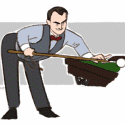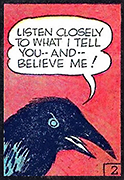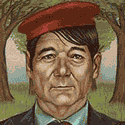|
Actually, we call those people “mainstream western politicians”
|
|
|
|

|
| # ? Apr 29, 2024 05:35 |
|
And that's how Panama was born.
|
|
|
|
steinrokkan posted:That's not what tankie means.  I will take that challenge.
|
|
|
|
Tony Snark posted:And that's how Panama was born. Actually Panama was born through Train Diplomacy.
|
|
|
|
NorgLyle posted:
The Civ V version is thematically appropriate: quote:Gain 6 more Influence per turn with City-States you could demand tribute from. Your military forces are 50% more effective at intimidating City-States.
|
|
|
|
Platystemon posted:The Civ V version is thematically appropriate: Also, the Civ5 version is exclusive to turning your civ fascist.  It's a really useful policy if you're going for a diplomatic victory as autocracy, and there's a reason the achievement for winning a diplomatic victory as autocracy is dubbed Axis Powered.
|
|
|
|
Autocracy’s niche in Civ V multiplayer “I’m losing the game and I want to lash out.” You won’t necessarily win, but you can definitely wreck someone else’s civ.
|
|
|
|
Very accurate. And its tenets are mostly built around waging war and being able to ignore your problems.
|
|
|
|
Kinda goes hand in hand with its niche of being the ideology if you've got a big military. Order (communism, for those unfamiliar with Civ5) is geared to benefit civilizations with lots of territory and cities, which are likely to not be particularly well developed. Freedom (western style democracy) caters to geographically small but very populous and heavily developed nations. Ironic or appropriate, your choice: the most natural early game civic to pair with Order is Liberty, Greco-Roman style early republicanism. Freedom pairs naturally with Tradition, old-style monarchy and oligarchy.
|
|
|
|
Cythereal posted:Ironic or appropriate, your choice: the most natural early game civic to pair with Order is Liberty, Greco-Roman style 
|
|
|
|
Freedom is the ideology of “I’m ahead and wish to continue my cruise to victory.” Order is the ideology for “I need to fend off a fascist invasion and, if I survive, compete with the Freedom civ.” You’re the underdog, but in that position it’s not self‐defeating like the other ideologies.
|
|
|
|
Tony Snark posted:And that's how Panama was born. ...A man, a plan, a canal, Panama...
|
|
|
|
Say Nothing posted:...A man, a plan, a canal, Panama... A man, a plan, a canoe, pasta, heros, rajahs, a coloratura, maps, snipe, percale, macaroni, a gag, a banana bag, a tan, a tag, a banana bag again (or a camel), a crepe, pins, Spam, a rut, a Rolo, cash, a jar, sore hats, a peon, a canal – Panama!
|
|
|
Zopotantor posted:A man, a plan, a canoe, pasta, heros, rajahs, a coloratura, maps, snipe, percale, macaroni, a gag, a banana bag, a tan, a tag, a banana bag again (or a camel), a crepe, pins, Spam, a rut, a Rolo, cash, a jar, sore hats, a peon, a canal – Panama! And yeah I think one diplomatic attache who had watched the Monitor vs. the Merrimack said something to the effect of, "This morning we had 159 top of the line ships. Now we have that one ironclad and that other one we're working on."
|
|
|
|
|
"A map of The Somme after the battle. Each grid square is 250 square metres. The numbers written in blue are the amount of bodies found within them."
|
|
|
|
That is hosed.
|
|
|
|
Biplane posted:"A map of The Somme after the battle. Each grid square is 250 square metres. The numbers written in blue are the amount of bodies found within them."
|
|
|
|
829 bodies in 1.4 acres.  (Smallest boxes are 83⅓ yards to a side according this page.)
|
|
|
|
C.M. Kruger posted:The ships then got taken in and out of service over the years for various times when they were needed such as the War of 1812 and the Barbary Wars. I grew up in a small rural village in New Zealand and it was a source of much disappointment when I found out these had nothing to do with haircuts. The world became a little less magical.
|
|
|
|
HairyManling posted:God drat, the hell that fell upon those in grids 5 & 11 must have been horrific. S4 was clearly the place to be
|
|
|
|
Biplane posted:"A map of The Somme after the battle. Each grid square is 250 square metres. The numbers written in blue are the amount of bodies found within them." My eyes went straight to the 700/800 squares In the lower middle area for some reason. Ben Elton wrote non comedy book about ww1 that imagined what it was like to be in there at that time I think. Can't remember what it was called.
|
|
|
|
Azhais posted:S4 was clearly the place to be They didn't find any bodies, likely because anybody there was just a smear of grease.
|
|
|
|
Automatic Retard posted:My eyes went straight to the 700/800 squares In the lower middle area for some reason. Ben Elton wrote non comedy book about ww1 that imagined what it was like to be in there at that time I think. Can't remember what it was called. Her Privates We by Frederic Manning is a fictional novel about The Somme by a guy who was in the battle. It's set sort of between charges, but really feels like it nails down what it was like for the foot soldiers.
|
|
|
|
In the Kingdom of Travancore women of lower castes had to pay a "breast tax" if they wanted to cover up their breasts. One woman, called Nangeli, refused to uncover her breasts or pay the tax and after the tax man had repeatedly asked her to pay she cut off her breasts and offered them as payment. She later died of blood loss. The "breast tax" was abolished in 1859.
|
|
|
|
|
Alhazred posted:In the Kingdom of Travancore women of lower castes had to pay a "breast tax" if they wanted to cover up their breasts. One woman, called Nangeli, refused to uncover her breasts or pay the tax and after the tax man had repeatedly asked her to pay she cut off her breasts and offered them as payment. She later died of blood loss. The "breast tax" was abolished in 1859. was there an official Breast Inspector who went around enforcing the tax?
|
|
|
Alhazred posted:In the Kingdom of Travancore women of lower castes had to pay a "breast tax" if they wanted to cover up their breasts. One woman, called Nangeli, refused to uncover her breasts or pay the tax and after the tax man had repeatedly asked her to pay she cut off her breasts and offered them as payment. She later died of blood loss. The "breast tax" was abolished in 1859.
|
|
|
|
Straight White Shark posted:was there an official Breast Inspector who went around enforcing the tax? If there's a tax there must be a taxman
|
|
|
|
|
Alhazred posted:In the Kingdom of Travancore women of lower castes had to pay a "breast tax" if they wanted to cover up their breasts. One woman, called Nangeli, refused to uncover her breasts or pay the tax and after the tax man had repeatedly asked her to pay she cut off her breasts and offered them as payment. She later died of blood loss. The "breast tax" was abolished in 1859. https://en.wikipedia.org/wiki/Breast_Tax Motherfuck.
|
|
|
|
Biplane posted:"A map of The Somme after the battle. Each grid square is 250 square metres. The numbers written in blue are the amount of bodies found within them." You
|
|
|
|
Trabant posted:You "French and British Empire run out of eligible male population years before we do" was a completely valid strategy, until the US intervened and messed everything up. At least if you are an aristocratic Field Marshal from Prussia, to whom anyone without royal ties was in fact, not a human being.
|
|
|
|
Copying a couple posts from the military history thread since the end of WWI is seldom talked about, or how the war basically ended in the same amount of time as the hellishly bloody Battle of the Frontiers (where France lost 2% of their entire army in one day) that started things:Trin Tragula posted:Right, I owe you lot this for auld lang syne, if nothing else. Trin Tragula posted:THE END OF THE FIRST WORLD WAR: A (Really Short) TIMELINE
|
|
|
|
C.M. Kruger posted:Copying a couple posts from the military history thread since the end of WWI is seldom talked about, or how the war basically ended in the same amount of time as the hellishly bloody Battle of the Frontiers (where France lost 2% of their entire army in one day) that started things: Copying Trin is cheating, he's the best at World War 1. I learned more about European world history from his Day By Day posts then from pretty much any other source in my entire life.
|
|
|
Suspect Bucket posted:Copying Trin is cheating, he's the best at World War 1. I learned more about European world history from his Day By Day posts then from pretty much any other source in my entire life. Do you have a link? e: here it is: https://makersley.com/a-failure-of-oversight/ Sulla Faex has a new favorite as of 16:48 on Nov 22, 2018 |
|
|
|
|
Sulla-Marius 88 posted:Do you have a link? Haha, yeah, sorry, I was posting on mobile while at work, I basically made that post word by word in the middle of customers. I did get to read part of it undisturbed, and I was very proud of myself for recognizing Trin's style of writing. I bought both of his e-books, they are great being both Long, and Bite Sized, so you can read for five minutes, or six hours. I just wish the advertisements were in the books too, but licencing and stuff is hard x.x BTW, Trin's Day-By-Day Ebooks are a must buy if you have any interest in WW1. Trin was a god damned champ for about two straight years about the day-by-day posts, and the books are simply excellent. I hope he gets the spare time and gumption to do the other years, but I understand completely how exhausting it must be. https://makersley.com/buy-the-book/ They are three dollars each you guys BUY THEM But if you are broke and in need of a WW1 read, I recently found the adventures of the SMS Emden on Gutenberg. AKA, the longest escape ever undertaken. https://www.gutenberg.org/ebooks/45878 Hell. Have a Historical Fun Fact to make you read the dang book. The Emden was built for the German Navy in 1906, sister ship the the Dresden. WW1 happened, they were being naughty in the Cocos Islands and blowing up ships and telegraph stations and the like. But nobly naughty, as the Captain Karl von Müller, and First Officer Hellmuth von Mücke who, while earning several medals, fighting with dash and galantry and blowing up a fair few ships, also was renown by both sides for his care in not involving civilians or non-combatants. Seriously. First Officer Mücke lands on an island with an English telegraph station on the Cocos, and the exchange basically goes  : Hey, sorry, I gotta destroy this telegraph station. Could you unlock the doors and such so my men don't have to knock them down? : Hey, sorry, I gotta destroy this telegraph station. Could you unlock the doors and such so my men don't have to knock them down? : Of course. By the way, we've been reading the latest news, congratulations on your captain's Iron Cross. : Of course. By the way, we've been reading the latest news, congratulations on your captain's Iron Cross. His iron what now His iron what now : Oh ding dang. Can me and my forty guys borrow that tiny old sailboat in your harbor? : Oh ding dang. Can me and my forty guys borrow that tiny old sailboat in your harbor? : Um, it's broken and old as bollocks, but sure. Here, have water and other provisions for the journey. : Um, it's broken and old as bollocks, but sure. Here, have water and other provisions for the journey. : Farewell, strangely helpful man : Farewell, strangely helpful man(13 days, 800ish miles, several storms, and a lot of teaching coal stokers to be sailors later)  : Excuse me, this is Sumatra, we are the Neutral Dutch, Why is your tiny ship full of dudes? : Excuse me, this is Sumatra, we are the Neutral Dutch, Why is your tiny ship full of dudes? : Greetings sir, just need to make repairs and stock up on provisions. Just going for a sail back to Germany. : Greetings sir, just need to make repairs and stock up on provisions. Just going for a sail back to Germany.  : You mad bastard. : You mad bastard.(16 more days of sailing and roughness)  : Our coaling ship! Here to save us! : Our coaling ship! Here to save us! : Would love to buddy, but look at this giant storm : Would love to buddy, but look at this giant storm(two days of fighting storms later)  : Okay, now we are STEAMING to Yemen! At 7kts an hour through enemy infested waters. Also, it's like 3000 miles away. : Okay, now we are STEAMING to Yemen! At 7kts an hour through enemy infested waters. Also, it's like 3000 miles away. : Sick let's go : Sick let's go : Wait how do you get to Germany. : Wait how do you get to Germany. : Buy camels, train 40 guys who have never ridden before into a sort of dragoon force, ride the length of the red sea, across a gigantic desert called the Middle East, catch every disease, get to Turkey, catch a train or something. : Buy camels, train 40 guys who have never ridden before into a sort of dragoon force, ride the length of the red sea, across a gigantic desert called the Middle East, catch every disease, get to Turkey, catch a train or something. : lol nice try not to get attacked by English backed Bedouin warriors : lol nice try not to get attacked by English backed Bedouin warriors : I most certainly will : I most certainly willAnd then he did and only lost like 2 guys. Read the book. Suspect Bucket has a new favorite as of 02:48 on Nov 23, 2018 |
|
|
|
Ok, that's a really fascinating way to read up on the Great War/WW1 and I'm so glad you had that link. That's me sorted for.... well, 'til christmas at the least.
|
|
|
|
Keru posted:Ok, that's a really fascinating way to read up on the Great War/WW1 and I'm so glad you had that link. That's me sorted for.... well, 'til christmas at the least. Be done by Christmas, eh.
|
|
|
|
Suspect Bucket posted:
That's like WW1 Anabasis.
|
|
|
|
Byzantine posted:Be done by Christmas, eh. I'm glad someone caught that.
|
|
|
|
The Mighty Atom https://www.youtube.com/watch?v=Fvq514-grRU
|
|
|
|

|
| # ? Apr 29, 2024 05:35 |
|
Since we're on WWI, this is coming out: https://www.youtube.com/watch?v=IrabKK9Bhds Could be amazing.
|
|
|




































